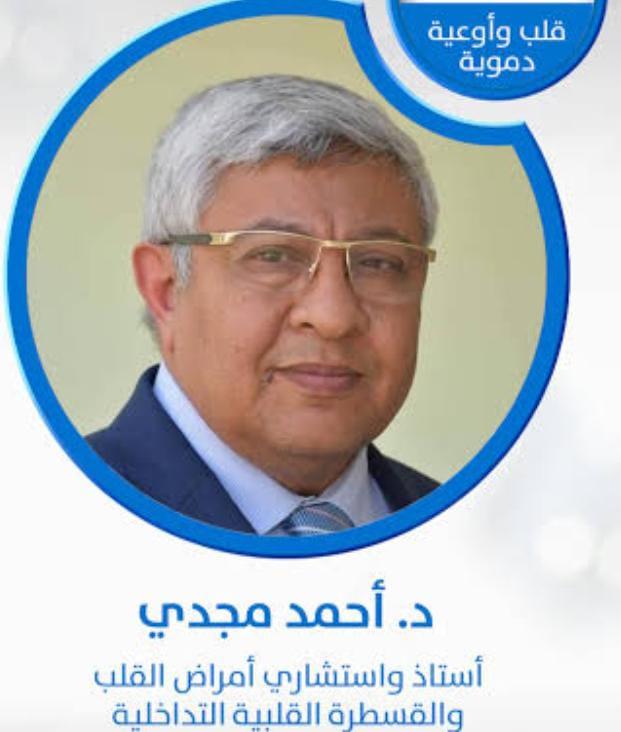Dr. Ahmed Magdy
Professor and Consultant of Cardiology and Interventional Cardiac Catheterization
Head of the Cardiology Department at the National Heart Institute
Academic and Professional Qualifications:
Professor of Cardiology and Interventional Cardiac Catheterization: Dr. Ahmed Magdy has extensive scientific and practical experience in the field of cardiology and interventional cardiac catheterization. His work at the National Heart Institute, one of the top medical centers in Egypt, ensures his prominent position in the medical community.
Ambassador of the American Society of Cardiovascular Catheterization: As an ambassador, he contributes to enhancing collaboration between Egyptian and international cardiologists in the field of cardiovascular catheterization.
Chairman of the Scientific Council of the Cardiac Catheterization Fellowship: He manages and oversees training and development programs for doctors specializing in this field, helping to improve the quality of cardiac care.
Coordinator of the European Society of Cardiology: Dr. Magdy is actively involved in coordinating scientific and educational activities related to heart care across Europe, fostering knowledge exchange and collaboration among cardiologists.
Fellow of the American College of Cardiology: He is recognized as one of the leading cardiologists globally, accredited as a fellow of the American College of Cardiology, a testament to his high level of professional expertise.
Subspecialties:
Adult Cardiology: Dr. Magdy treats all types of heart conditions in adults, ranging from arrhythmias to complex diseases like heart failure and heart attacks.
Adult Vascular Medicine: This subspecialty involves the treatment of vascular conditions such as arterial blockages, varicose veins, and other disorders affecting the blood vessels.
Services and Treatments:
Heart Muscle Weakness Treatment: Dr. Magdy provides advanced treatment options for heart muscle weakness, a common condition that can lead to heart failure. His treatment focuses on alleviating symptoms and improving cardiac function.
Interventional Cardiac Catheterization: He specializes in performing interventional cardiac catheterization, a modern technique used for diagnosing and treating heart issues such as coronary artery blockages.
Preventive Care and Ongoing Monitoring: Dr. Magdy offers preventive consultations for patients at risk of heart disease due to genetic factors or lifestyle. He guides them on preventive measures such as lifestyle changes or medications to prevent heart attacks.
Professional Experience:
Professor of Cardiology and Interventional Cardiac Catheterization at the National Heart Institute since 1986: Dr. Magdy is one of the longest-serving doctors at the National Heart Institute, significantly contributing to the development of cardiology in Egypt.
With profound expertise in diagnosing and treating both acute and chronic heart conditions, he is a pioneer in the use of cardiac catheterization for both diagnostic and therapeutic purposes.
Address:
National Heart Institute, Maadi, Street 153.
Consultation Fee:
600 EGP: The consultation fee with Dr. Magdy includes a comprehensive evaluation of the cardiac condition, where he assesses the symptoms and conducts necessary tests to determine the most suitable treatment plan.
Contact Information:
Phone: 02 25260123
Additional Notes:
Dr. Ahmed Magdy is highly regarded in the Egyptian and international medical communities for his dedication to patient care, his contributions to advancing cardiac treatment techniques, and his ongoing participation in international scientific conferences.

